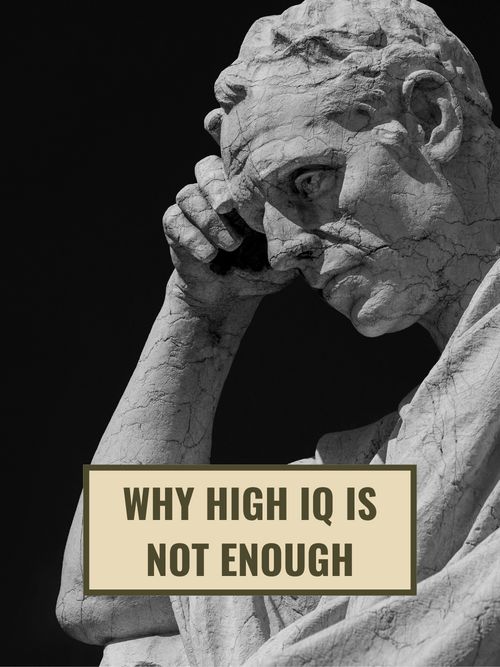Eight ingredients of genius
Mar 07, 2022 · 2 mins read
0
Share

Introduction. Hans Eysenck was one of the most cited, most discussed, and most controversial psychologists of the 20th century. His lifelong interest in creativity culminated in his book Genius. Today, discover 8 traits that add up to produce genius in arts, sciences, and more👇
Save
Share
Persistence. The smartest man with not enough persistence will lose to an extremely persistent man with just enough intelligence. The latter will "achieve greater eminence" as intelligence doesn't by itself mean genius achievement. Zeal and striving are crucial too.
Save
Share
"Your typical genius is a fighter." By definition a genius brings something original to the table: "The battle against orthodoxy is endless." Potential geniuses with no fighting spirit feel resistance and give up. Actualized geniuses have big egos and great "inner strength."
Save
Share
Geniuses trust their intuitions - often over data. Newton and Kepler infamously "fudged" their data to hide discrepancies and back their pet theories. Eysenck writes: "Usually the genius is right, of course, and we may in retrospect excuse his childish games."
Save
Share
Drive to excel. From childhood, future geniuses possess an "innate assurance of superior ability." The single most persistent trait among geniuses across different domains? Their untiring and obsessive "desire to excel." Geniuses are hyper competitive.
Save
Share
Over-inclusiveness. The genius has a tendency to not limit her "associations to relevant ideas, memories, images." Distant ideas may look unconnected and irrelevant to a normal mind, but to a genius they may share a hidden link. Genius produces insight via "unusual associations."
Save
Share
High IQ isn't enough. High IQ is a "necessary but not sufficient" condition for genius achievements. A high IQ person will fail to achieve brilliance if she doesn't have the disagreeability (ego-strength) to fight orthodoxy and doesn't have an extremely high desire to succeed.
Save
Share
Selection of the problem. A genius intellect can be wasted on the wrong problem. A problem may be too little for a genius - or unsolvable. A genius must pick an extremely hard and important problem that is nevertheless "soluble at the present time."
Save
Share
The genius and his unconscious. Eysenck: "Often when one works at a hard question, nothing good is accomplished." But this apparently unproductive session introduces the problem to the unconscious, which sets to work. During the second crack, "the decisive idea presents itself."
Save
Share
Bottom line. A genius has an extremely high IQ, uncommon persistence, and an irrational belief in his intuitions. The conscious mind of a genius is in tune with his unconscious, and his brilliance is evident not just in his solutions, but in his selection of the problem as well.
Save
Share
0